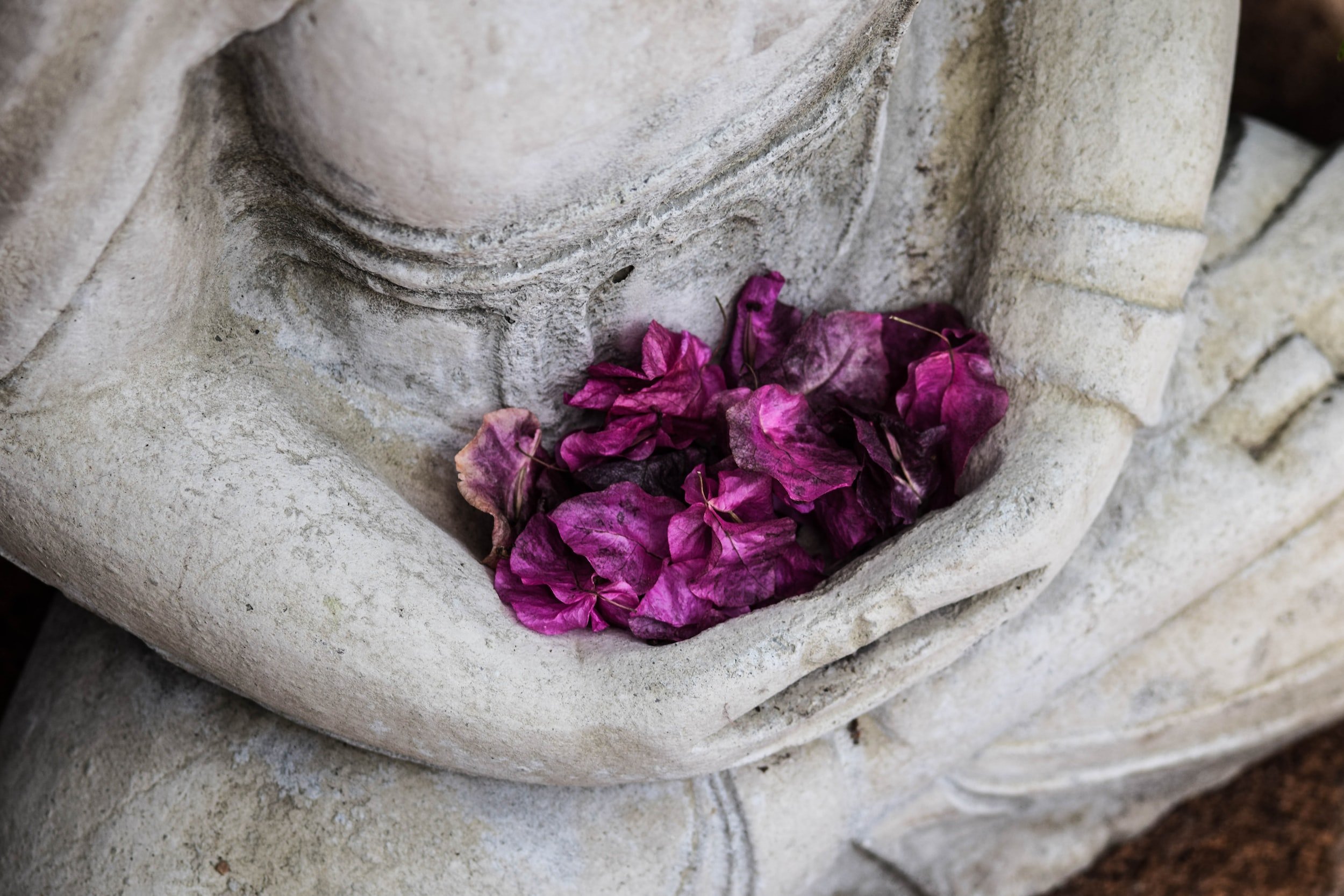
Well+Being Holistic Mental Health
Emotional Health & Wellness Tips From The Therapy Couch And Other Places

How to Navigate Divorce When Your Ex is Difficult or Your Relationship is High-Conflict
A survival guide for discerning women seeking clarity, protection, and healing in the wake of divorce
In my psychotherapy practice in New York City, I work closely with many high-achieving, emotionally attuned women navigating the complex terrain of divorce—often while parenting, managing demanding careers, and disentangling from high-conflict or narcissistic partners. These are not just women in crisis—they are women awakening. They come seeking more than legal advice; they come for nervous system repair, clarity, boundaries, reality testing, role and identity changes and the space to grieve and rebuild. My role is to support them not just as a therapist, but as a steady, confidential ally who understands the emotional, psychological, and practical toll that divorce takes—especially when children are involved and the relational dynamic has been chronically manipulative or unsafe. Whether we’re addressing trauma responses, co-parenting with a difficult ex, or reclaiming lost parts of the self, this work is deep, nuanced, and sacred.
Divorce is never just about two people. When children are involved—especially in New York City, where pressure, pace, and perfectionism run high—the stakes multiply. Add a difficult or high-conflict partner into the mix, and what should be a legal and emotional separation can feel more like psychological warfare. If you’re navigating this terrain, know this: you are not alone, and there are ways to move through it with strength, strategy, and your sanity intact. Whether you’re disentangling from a partner who gaslights, manipulates, refuses to co-parent, or subtly undermines your every effort to protect your children’s peace—you are in the right place. This guide is for the women I work with every day: smart, resilient, and emotionally attuned mothers in New York who want to shield their children while reclaiming their own voice.
Lessons from my own life experience with divorce
This work is deeply personal to me—not just because of my extensive training in trauma recovery, somatic psychotherapy, and high-conflict family dynamics, but because I’ve lived it. I’ve navigated my own difficult divorce, complete with the emotional exhaustion, identity loss, and the quiet ache of holding everything together for my children while unraveling inside. I know what it’s like to feel both fiercely capable and completely undone.

Rosemary Essential Oil: Your New Ally for ADHD, Anxiety, Mood & Everyday Wellness
Essential oils offer a natural, holistic approach to supporting mental health, providing calming and grounding benefits that can help individuals with ADHD manage focus, stress, and emotional balance in their daily lives. As a psychotherapist and consultant from New York City, I integrate essential oils into my therapy practice, particularly when working with clients undergoing EMDR and trauma resolution. Personally, I rely on essential oils in my own work, especially when I’m operating on less sleep or need a boost of focus and relaxation. These oils not only help me maintain clarity but also promote grounding and emotional stabilization, which is crucial when navigating complex emotional work. When it comes to holistic self-care, nature offers some of the most powerful tools, and rosemary essential oil is one such gift. Known for its versatile and therapeutic properties, rosemary oil has been used for centuries to support physical, mental, and emotional well-being. If you’re beginning a new chapter in your mental health journey—whether through psychotherapy, trauma healing, or personal growth—integrating rosemary essential oil into your routine can help regulate your nervous system and provide a holistic layer of support. From calming the mind and enhancing focus to soothing the body and uplifting the spirit, rosemary oil is an invaluable tool for managing ADHD, depression, mood concerns, and emotional regulation. It can help stabilize your energy, promote emotional balance, and guide you toward lasting wellness.

Natural and Holistic Alternatives for Anxiety: A Manhattan Psychotherapist’s Guide
Most of us struggle with anxiety from time to time. Many turn to prescription medications—such as SSRIs (Selective Serotonin Reuptake Inhibitors) or anxiolytics like benzodiazepines—to find relief. While these medications can be highly effective for some, others may experience unwanted side effects, limited symptom relief, or prefer to avoid long-term pharmaceutical use. Fortunately, there are safe, evidence-informed natural alternatives that can complement or, in some cases, replace medication.
As a holistic psychotherapist, I work with individuals who want to address anxiety through integrative methods. Whether you’re tapering off medication, hoping to avoid starting it altogether, or simply looking to supplement therapy with natural approaches, you deserve an individualized, science-informed plan tailored to your nervous system.
Why Choose a Holistic Approach to Anxiety?
Holistic anxiety treatment focuses on the whole person—mind, body, and nervous system. Unlike symptom-targeted approaches that rely solely on medication, holistic therapy integrates lifestyle changes, nutritional support, and mind-body techniques to uncover and treat the root causes of anxiety.
This approach may include:
Psychotherapy modalities such as EMDR, Somatic Experiencing, CBT, and mindfulness-based therapies
Complementary practices like breathwork, grounding, and movement
Amino acid therapy and targeted nutritional supplementation
Personalized lifestyle modifications to reduce stress and regulate the nervous system
How Anxiety Can Affect Your Life
Anxiety isn’t just “worry”—it’s a complex condition that can impact every area of functioning. Understanding its full range of effects helps normalize your experience and illuminate a path forward.
Emotional impact
Anxiety often brings intense feelings of fear, worry, and apprehension. These emotions can feel overwhelming and lead to sadness, irritability, or panic.Physical symptoms
Common physiological signs include a racing heart, dizziness, shortness of breath, GI upset, muscle tension, fatigue, and trembling. These sensations can mimic other health issues and be frightening in their own right.

Heal Trauma And Reclaim Your Spirit And Your Life
Traumatic experiences change the brain. Some changes are meant to protect from future negative experiences. Just as trauma changes the brain, it is possible to heal the brain. Trauma symptoms that live in the nervous system do not have to hold you in its grip forever. As you continue to think, talk, re-tell and act on your experience(s), you reinforce your attachment to what happened, as well as your brain’s wiring and connection, and this serves to maintain your symptoms as you loop on the upsetting memory and trauma responses. As a New York City based Psychotherapist, I work with individuals who have experienced trauma and would like to heal and improve their lives.
The brain and body is designed to heal. We now know that the brain has an amazing capacity to heal by creating new neural pathways. This process is called neuroplasticity. When people are finally able to regain control over their thoughts, behaviors, responses and lives, the brain's limbic system,

About Holistic Psychotherapy
Holistic Psychotherapy is beneficial for people of all ages, and it’s never too late to begin developing healthier lifestyle habits. No matter your age, mental health issues can interfere with your wellbeing throughout your lifespan. Individuals and couples enter therapy with a unique set of challenges and goals. As a holistic psychotherapist with a private practice in NYC, I specialize in helping older adolescents, adults and couples who experience struggle in their day to day lives. My focus is to help you uncover the root cause of your struggle in psychotherapy, as holistic psychotherapists believe that this is the best path forward to support your mental health recovery. Let me explain the many ways therapy can help make your life better.
Psychotherapy offers the opportunity for an individual to better understand and change patterns of behavior, feelings, and relationships that are getting in the way of your functioning. Psychotherapy offers the opportunity for an individual to understand and change patterns of behavior, feelings, and relationships that are getting in the way of higher-functioning. Good therapy can enable you to have richer, fuller and more meaningful life experiences.
What Does Holistic Psychotherapy Do?

The Healing Power Of Relational Psychotherapy
We are all born with unique attributes and qualities. If we are fortunate enough to have optimal circumstances and nurturance along the way, we develop into secure adults. Adults with secure attachment and relational capacity are able to have meaningful experiences and relationships. They feel safe in the world and with others. Secure individuals are free to thrive.
As it turns out, most of us have had more adversity than is helpful. While some adversity makes us strong (we develop skill and resilience), too much adversity threatens to overwhelm us. It interferes with growth, because we are unable to feel safe, explore the world and develop adaptive coping strategies. Reduced capacity to cope naturally leads to anxiety, depression, addictions, compulsions, eating disorders and other troubling symptoms. When symptoms and poor coping takes over, our ability to establish healthy relationships, maintain those relationships and function well in the world is diminished. Sometimes we are fortunate enough to make an important connection to begin the healing process. The therapeutic relationship is one way to begin to heal.
Mental health seems to be experiencing a time of less stigma and greater awareness. People seem to feel safe sharing their mental health struggles on social media. The pandemic certainly led to an increase in loneliness, isolation, anxiety and terror, which led many to seek therapy and counseling, sometimes for the first time. This exploration to find a therapist also led to a great deal of confusion. With so many potential therapists and different therapeutic orientations, the big question becomes, “what’s the right type of therapy for me?”
Many want a quick fix as they enter therapy. Of course, short-term models that offer skill building and concrete interventions have their place. The problem with this strategy is that it rarely moves the needle when it comes to true healing.

Psychotherapist, Psychoanalyst, Psychologist, Psychiatrist: What’s The Difference?
As a Manhattan-based licensed psychotherapist in private practice, I get this question a lot. What do all these acronyms after last names actually mean? And what do you need to find the very best NYC therapist for you and your healing goals? You are struggling right now and need to find high-quality mental health care in New York City, but it’s all so confusing. Your search for the right therapist can be intimidating and downright overwhelming. Should you work with a private therapist or should you sort through the group practices to find the best therapist for you? All those acronyms; all those modalities—getting started with therapy should be easier!
I’m sharing with you a trend that I’ve noticed, that you may not be aware of. Many group therapy practices charge standard psychotherapy fees and even high fees, and place you with a therapist trainee. This practice should be disclosed to you so you are fully informed about your care. When you are assigned to a therapist, you have a right to ask about their training and experience.
All therapists in training (in my field that’s an LMSW, until they reach LCSW designation) will undergo nearly 3 years of supervision or about 3000 mandatory practice hours. If you’re assigned to an LMSW, you’re working with a therapist who is being supervised as they work towards their hours. After a therapist in training has met this requirement, they are autonomous and can then work in private practice without supervision. If you work with a therapist undergoing supervision, your therapist or counselor will need to discuss your case at weekly meetings with their licensed, supervising therapist.

Amino Acid Therapy To Heal Your Brain & Improve Your Anxiety, Depression, ADHD & More.
Some common reasons people reach out for therapy and counseling is to address their new or longstanding mental health challenges. Symptoms such as anxiety, depression, addiction, insomnia and lack of motivation are often so debilitating that they are unable to live the life they desire. In my experience, psychiatric medications are essential for many, and truly life saving. But for those who have not had success with traditional psychiatry, it’s worth considering the highly-effective natural solutions that are rarely offered in conventional medicine.
Many mental health symptoms are all indications that levels of neurotransmitters such as serotonin, GABA, and the catecholamines dopamine and norepinephrine (there are more) are low. This is otherwise known as neurotransmitter dysfunction or imbalance. There are four main neurotransmitters involved with mood and behavior, and they are: serotonin, GABA, endorphins and the catecholamines (dopamine/Norepinephrine). The main focus with Amino Acid Therapy in clinical practice is on the serotonin-catecholamine system. Low levels of each of these, lead to a very specific pattern of mental health symptoms. It’s important to know that there are many reasons why brains become depleted and imbalanced, such as, trauma, chronic stress, chronic pain, loss, poor nutrition, addiction, hormonal changes and genetic predisposition, and thankfully, there are effective and powerful ways to restore brain health.
Our bodies need amino acids to work properly, and they are crucial to metabolic function. Some amino acids are made by the body, and others come from your diet. Typically, when you consume a protein, your body breaks it down and what's left is the amino acid. Amino acids are precursors to neurotransmitters, and when these vital messengers are deficient or imbalanced, information is not relayed optimally in the brain, and symptoms arise. Amino acid therapy aims to heal and restore the brain to optimal functioning by supplementing what’s missing based on history, symptoms, behaviors and response to trial treatment.

Essential Oil Therapy As Medicine
The Power of Essential Oil Therapy in Holistic Healing
Essential oil therapy is a powerful, natural tool that supports a wide range of physical, emotional, and psychological healing. Whether used as single-origin oils or as part of synergistic blends, essential oils work at the cellular level to influence mood, energy, and wellbeing. Many integrative psychotherapists, EMDR practitioners, somatic therapists, and wellness professionals incorporate essential oils to deepen therapeutic outcomes—especially in trauma release sessions, yoga therapy, Reiki, and mindfulness-based practices.
Essential oils can be administered in three primary ways: aromatically through diffusion or direct inhalation, topically via the skin (often diluted in a carrier oil), or taken internally when guided by a knowledgeable provider. Personally, I use essential oils daily—in my own wellness rituals and to enhance yoga, meditation, and emotional regulation. I always recommend using only pure, therapeutic-grade essential oils sourced with integrity to ensure safety and efficacy.
What Are Essential Oils And How Do They Work?
Essential oils are highly concentrated plant extracts obtained through careful distillation or cold-pressing techniques. These potent oils contain complex chemical compounds that hold the therapeutic essence of the plant—its scent, flavor, and healing potential. In fact, it often takes pounds of plant material to produce a single drop of essential oil, which is why quality matters so deeply.
When inhaled, essential oil molecules travel through the olfactory system, directly stimulating the limbic brain—the seat of emotion, memory, and the stress response. The olfactory nerves transport scent molecules into the nasal cavity, where they are picked up by neurons and carried within milliseconds to areas like the amygdala, pineal gland, and pituitary gland.

